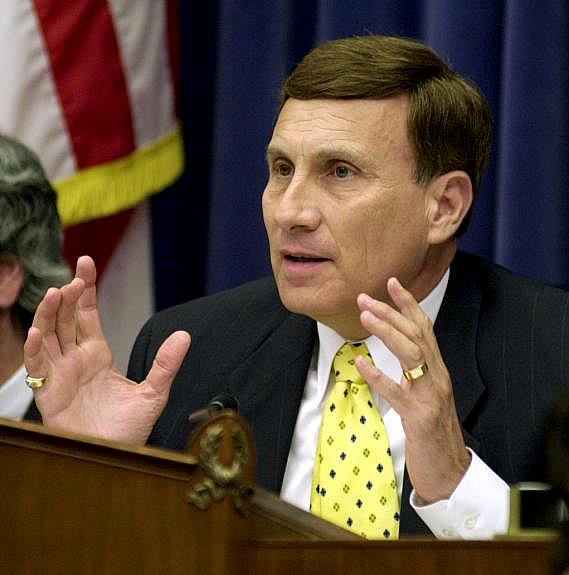Never in history have we cut our way out of a recession. No nation state in history has ever done so. The vast majority of economists and historians have demonstrated this conclusively. We need to grow our way out of this problem.
The deficit is a long-term problem. We must address it by growing our economy while trimming spending only in ways that do not work against growth.
We have cut taxes on the wealthiest to historic levels and still the private sector hesitates to invest in America by creating jobs. Government must lead by creating jobs that will put money in the pockets of more Americans. This will expand the market and encourage private sector job growth, enabling us to cut back public sector jobs once the economy is growing at an adequate rate. It will also increase revenues to help support our investment in America’s future by increasing the number of Americans paying income tax to the federal government and sales tax to city and state governments. Foreclosures will no longer force American families into desperate situations where they cannot contribute to the economy, nor will they threaten the solvency of our banks and financial institutions.
Our opponents cast government as a threat to liberty. The history of the United States is revolutionary in that it demonstrated how the government of a Democratic Republic can increase liberty. The US government has worked to guarantee personal freedoms, voting rights, property rights and continues to protect them. Our government, representative as it is of the American people, our ideals and our traditions, is not a threat to liberty, but its primary advocate and guarantor. It is our duty to continue to lead the civilized world by setting the finest example of Republican Democracy that we can. We must continue to lead the way. Attacking our own government with paranoid slanders, undermining our economy with a faith-based moral perspective that ignores historical precedent, as opposed to building ourselves back up with a faith in our ideals that helps us recognize the facts and lessons of our own history, is an abdication of everything good this country has represented since our founders replaced a tyrannical government with one subject to and in service to all its citizens.
The causes of our current crisis are neither moral nor pathological. We have not lost our way, nor have we become beleaguered addicts to waste and corruption. The causes are practical and the solutions must be pragmatic. While government cannot be the entire solution, there is no solving this crisis without vigorous government leadership.
We engaged in wars without raising the funds to wage them. No taxes were raised and no bonds sold. We must bring these wars to a close as soon as we can responsibly do so.
We stripped away necessary regulations that protected the parameters of our financial system. We must restore those regulations that, like the rules in any competitive sport, enable players and teams to excel.
Finally, we must address income inequality. No society has ever been able to operate in a stable and peaceful manner without a reasonable distribution of wealth. The wealthy, in hording far too much of our nation’s economic value, are threatening not only the rest of us, but the basis of their own prosperity. They are starving the goose that has laid their golden eggs. This must be addressed through comprehensive tax reform.
Our opponents want government to retreat precisely when we need it to lead. Our opponents demonize government and claim to represent the American people. They do indeed represent a percentage of the American people. But not all of the American people. Those who disagree with them are no less a part of the American people. The American people elected a government to lead, not retreat. Government office holders must both listen to all the people that elected them and that elected their colleagues and they must lead as they were elected to do. Government must lead both responsively and responsibly. Demonizing the US government is anti-patriotic. It demonizes the people that elected that government.
Taxes are neither evil nor sacred. They are tools that must be used appropriately. It’s easy to base an entire movement on hatred of taxes. It’s easy to base an entire movement on hatred of a government bogey man. It’s easy to scare people by telling them that government seeks to restrict their liberty. It’s easy to pander to people with false analogies and flatter them with appeals to common sense. Common sense cannot replace expertise when dealing with complex systems. National economies are not simply larger versions of family and business economies. They are the context that enables the functions of businesses and families. Anarchy, the lack of government, does not protect families or the conditions in which businesses flourish. Our national economy is not just a bigger system, but a more complex one.
When you need surgery and your life is at stake, you want the most highly trained, skilled, and learned surgical team. But you also need that team to explain to you why its diagnosis and plan for treatment is the optimal one. Your surgeon and her team have this responsibility. Our economic predicament is as complex a system as a human body. We won’t solve it with platitudes and flattering lip service to our common sense. Platitudes and flattery are a form of condescension. We must turn to our leaders and economists and demand clear explanations. We must join together to make prudent decisions. Immediate, simple, miracle cures are nothing but snake oil. We must have faith in ourselves and at the same time listen and learn with humility.
Slogans and catch phrases will feed our anger and fears, not relieve their causes. It’s time to put aside divisive rhetoric and easy slogans. It’s time to pull together to solve our problems. FDR taught that “the only thing we have to fear is fear itself.” Bill Clinton reminded us that “there is nothing wrong with America that cannot be fixed by what’s right with America.” If we shed our fear and look to what’s right with America, we will fulfill Ronald Reagan’s vision of a new “morning in America.” Let us put aside our fretting and our fighting. Let’s get to work.


 A fragmentation of power, capital and ideas is creating a new map of the world – with lasting implications for investors and policymakers alike.
A fragmentation of power, capital and ideas is creating a new map of the world – with lasting implications for investors and policymakers alike.
